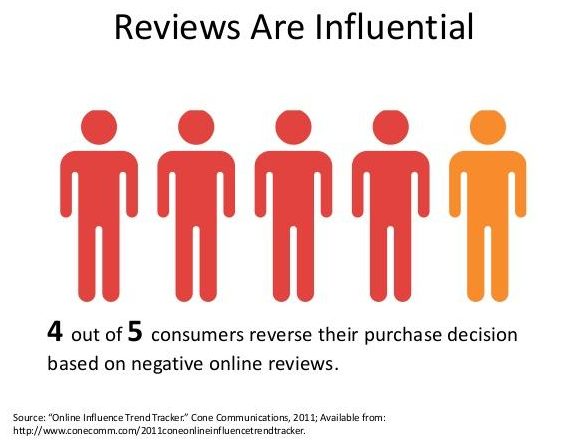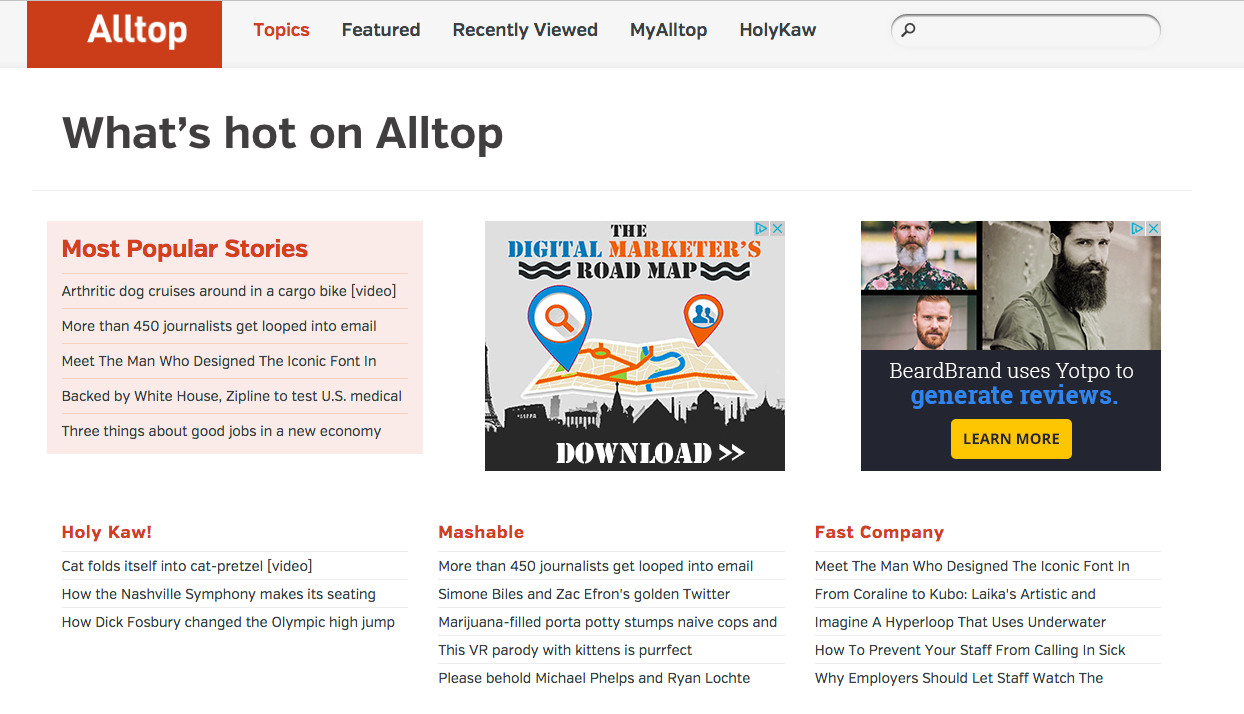
You've probably faced this before.
I know I have.
You've run out of ideas.
Maybe you've been blogging along for, I don't know, maybe three or four years. Maybe it's only three or four months.
And now you're done. Why? Because you've written everything there is to write about the subject.
You've exhausted all possible avenues, topics, approaches, angles, possibilities, and techniques. It's over. Your blogging career has to die because you don't have anything else to say.
It's no use trying to fake it and continue to post recycled fluff just to keep your audience placated, because they will wise up fast.
If you're out of ideas, you're out. You can't just-boom!-make yourself write new stuff on demand.
What do you do?
It's time to step back and strategize.
I've been blogging for a long time. Ten years is a long time, right?
And I still haven't stopped. I'm not just blogging here, on Quick Sprout. I'm also posting a lot of articles on NeilPatel.com, maintaining columns on Huffpo, Forbes, and Inc., and sharing guest articles with other marketing sites.
Yes, I deal with the same topics, but I have to provide fresh and unique content all the time.
Here are some of the ways I come up with interesting topics in order to keep readers engaged, informed, and coming back for more.
1. Don't just read. Analyze all angles of the news
Staying up-to-date with the latest events in your industry is not always a matter of a quick Google search.
Google News only indexes a limited number of websites for its web searches and even fewer for its News aggregator.

Start with the most basic search, and compare your SERPs and headlines to other news sources.
It helps tremendously to research the demographics of your favorite news websites and determine some of the most recognized brand names in the industry as well as well-known commentators associated with that industry.
Take note of the movers and shakers of your business, and follow their movements.
Follow them on social media to see not only what they are posting but also what they're reading and what they're sharing and retweeting.
You'll see what's on their minds, and knowing the thought process of influencers in your industry, you'll be able to anticipate tomorrow's news.
2. Stay tuned into the voice of the people through social media comments
Don't stop looking for ideas after reading the most respectable and popular publications. Why? Because some of the best conversation starters are trending on social media.
They may not come from a reliable news source, but do these topics generate interest? Absolutely!
More Americans actually get their news from Facebook and Twitter than they do from network programming.

Some of the most absurd “guilty pleasure” posts trending on Facebook (you know, ridiculous headlines like “Child Sues Mother for Deleting All Her iPad Apps” or whatever) are great places to collect ideas.
Have you seen this meme that says, “I just came here to read the comments?”

Well, sometimes I do visit websites just to read the comments!
Why? I gauge what people are thinking about trends, the questions they ask, and what's inspiring them to comment.
People really speak their minds, holding nothing back! I've been shocked by the things I've read.
Ask questions about the stories and articles you read.
- Why did this inspire controversy?
- What made people comment?
- What was the biggest issue people commented about?
- Who else might this event or trend affect besides the person interviewed for the story?
- What might be the long-term result of these new trends?
- What does this show us about how people's attitudes have changed on a given subject over a period of time (several years, for example)?
Maybe the story you encountered on Facebook will spark an idea for a post on “How many parents admit to using iPads to keep their children quiet?”
It's a related discussion to the original story you read, and yet if you're an app developer or iPad seller, it's also more relevant to your audience.
Ideas come from unexpected places. The more you constantly feed your mind, the more ideas will come to you. Write them down as soon as inspiration strikes.
Keeping up with social media news-and just as importantly, the comments of users and how the news makes them feel-is a great place to spark your creativity.
3. Visit some Q&A sites, and borrow their questions
Most questions on Q&A sites are public domain. Your answers can prove to be invaluable.
Industry leaders are always ready to answer a customer's question, and frankly, it's just the polite thing to do.
Now, guess where these people go to get a professional opinion on a question they have?
They certainly don't go directly to your office or your website, do they? They may not even run a keyword search.
No, they just ask whoever is nearby.
The current generation is used to asking questions and getting answers in 30 seconds.
If their friends don't know the answer, they'll ask random groups of people. And guess what? Eventually someone answers.
That's why you have sites such as LinkedIn, Yahoo Answers, and Quora, which discuss thousands of industry-specific questions you can browse.

Searching these sites is a double advantage for you. You can answer the questions on the site (getting some attention from the mainstream) and then write a new blog post or article by turning that brief Q&A into an entire 500-1000-word discussion.
Expand on the answers already given, and provide more insight on the issue.
Judging from the growing databases of these Q&A sites, you'll never run out of questions to answer-very often, even with niche topics.
4. Create your own database of customer concerns and questions
Chances are you've sold at least a few products, if not hundreds, by now. That means you have plenty of cases to study for your own marketing purposes.
What did your customers say in the reviews? What questions did they ask? Reviews matter, so pay attention.

You can generate ideas from their statements, survey information, emails, or testimonials.
I jump on the reviews customers leave to see tomorrow's trends.
I immediately read all posted reviews to see whether the customer is satisfied or not and whether they left any suggestions for improvement. I use their enthusiasm, positive or negative, to fire up discussion on the web content.
If you have never taken the time to learn your customer's personality and demographic, start now. Send a survey form along with every product delivery, and give them an incentive for taking the time to fill it out.
This will give you insight into your customer's mind, and it's the most direct and effective way to keep producing the content they want to read.
5. Research what your competitors have already done
There's no shame in learning from someone as equally ambitious and dedicated as you are. Make a list of your closest competitors-for industry as well as for local or long-tail keywords-and take notes on what they are writing about and why.
Now, you don't want to blatantly copy their entire article. Rather, analyze their topics, and determine ways to expand upon the story.
For example, for a broad topic such as food safety, ask yourself if there is a way to narrow it down to something more specific, like recent changes in the FDA's Food Safety Modernization Act.
If the topic is too niche and you can't think of a way to adapt it to an original article of your own, broaden the topic to your area of expertise.
There's no sense, however, in rewriting something that's already successful and niche-specific.
Coming up with fresh ideas is one-half researching other people's great ideas and one-half brainstorming ways to make your rendition better.
6. Research the history of your profession and all related professions-offline!
It may surprise you to know there is far more information in book form than there is all across the seemingly infinite Internet.
The Internet makes research easier, but the information found there is not as comprehensive as we might think.
Libraries and bookstores are an underrated source of information, particularly in exploring forgotten or lesser-known histories and studies.
The quality of paperback or hardcover books is generally much higher and more in-depth than that of Internet e-books or articles, which are really scratching the surface of what we know.
Consider quantity alone. According to a very conservative Google Books estimate, about 130,000,000 books are still in existence throughout the world, though the number could be higher than that.
In contrast, Amazon-a place many people consider the definitive source of books-has less than a million e-books and lists 1.8 million print titles for sale (according to a Quora discussion).
Libraries offer access not only to books but also to newspapers, journals, encyclopedias, and archival documents that are simply not online because there's no interest in them. In these records, though, there is enough research to power up a blog for years on end.
If you really want to establish yourself as an expert in your field and produce thoroughly original content, take your search offline and bring back a gem of knowledge.
7. Interview an expert
Content writers sometimes ignore the option to interview an expert because quoting press statements are easier to use.
If, however, you are in need of a series of interesting blogs or articles, reaching out to a professional in your industry (or related industry) for an in-depth discussion can generate enough information to write a number of individual posts.
Many experts will give interviews free, provided you have a popular blog or are reporting on a niche subject with little available information.
Many experts are eager to give online interviews either to correct what they think is inaccurate information on their subject or to build their reputation and make their name Internet-famous on a given subject.
I remember interviewing a number of leaders in my earlier days, and the issue of payment never came up. Sometimes these experts really love to share their knowledge and have someone listen.
Since they know you'll publicize the interview, it's a win-win for them, especially if you keep the interview brief, using phone or video chat.
Profnet, a subsidiary of PRNewsWire, is a site that matches writers with experts (or usually their representatives) in a number of fields.
Some will do brief interviews online or on the phone for free. Some experts might charge a fee, and if it's a niche in which you can produce a lot of content and get some highly targeted traffic, it may be worth the exchange.
8. Hire young blood
Fresh perspectives are the best way to think outside the box. If you run out of ideas, brainstorm with more members of the team. Owners will oftentimes hire new blood to help in brainstorming sessions.
Even as an individual web content writer, you can tap into young creativity by simply starting conversations with acquaintances in the office or in your circle of friends online.
Many of my websites, such as Crazy Egg, have content from multiple contributors. That's one reason why the content stays fresh.
Featuring writers from multiple backgrounds and demographics helps bring diverse, and sometimes even opposite, views on the same events we cover.
Another thing that can spark your imagination is hearing personal experiences of your colleagues or friends. People probably tell you stories about their lives all the time, e.g., an exciting commute to work, a weekend adventure, etc.
Do you actually listen and say to yourself, “You know, this would make a great blog topic!”?
You can tell their stories, with permission, or adapt their stories to start a discussion with your readers.
9. Learn to read the work of your enemies
It's amusing how reluctant we are to listen to our enemies or, in some cases, the “quacks” of a field who we believe are spreading anti-advice.
This is why some people completely block news sites they deem biased or ignore social media users that irk them.
But I think some of the most interesting revelations about any industry come from disagreement. When someone disagrees with you, it's an opportunity for you to sharpen your debating skills. You brush up on your knowledge of history and science so you can make an accurate rebuttal.
This is actually standard protocol in college when you write a dissertation. By learning the opposing side's viewpoint, taking into account their objections and their research, you strengthen your own argument.
It doesn't really matter if you believe the viewpoint or not. Whether spoken or written, it's a part of your industry. Maybe that means you must correct the misconceptions with your web content.
Be open-minded to new evidence. Test new and outside the box ideas, even if they seem ludicrous.
This is just a part of the brainstorming experience. By spending some time investigating wrong ideas about your industry, you can find the right idea. You will also have greater passion for your industry.
I make it a point to read both sides of an argument before concluding what each side got right and wrong. It doesn't hurt to play “devil's advocate” in your industry blog either.
Sometimes, I can come up with a topic after reading someone else's story that I feel is utterly false and misleading. And guess what? It stirs a great conversation, which gives me ideas for three more posts.
As you can see from this Pew Center graphic, many brand name news outlets are associated with biased viewpoints:

Bias isn't a bad thing, and it doesn't necessarily mean you should avoid a biased outlet.
Objectivity is not your concern. Rather, you can generate fresh ideas for new topics by reading opposing points of view on the same subject.
10. Stay on top of industry news
Social media is not the universal channel for industry news.
While social media is important to review so you can learn the voice of the consumer, blog writing it really its own entity.
If you don't move beyond social media, you'll frequently pass over some really good stuff because of poor hashtags, too much competition, and bad scheduling.
On the other hand, using a blog news app will help you stay up-to-date with relevant industry blogs as soon as they are updated.
You can subscribe to the RSS feed for fast updates, or you can use a website such as Bottlenose, which is a data discovery program that gives you real-time insights about the trends in your industry.

This goes beyond just bookmarking and actually allows you to get analytical insights about drivers of brands, consumer trends, emerging risks, and what the competition is doing.
Alltop provides a free service and, a bit more to the point, shares the top business blogs and the most trending news stories.

You can also create your own virtual magazine rack of top websites, magazines, and blogs. Better yet, you can even share your rack as a URL for easy interaction.
Conclusion
Lastly, remember that your brain is constantly working.
Even during sleep, it can subconsciously give rise to new ideas.
If you're feeling drained and out of fuel, take a break and sleep on it.
Let your mind dwell on the idea over time, and make subconscious connections while you attend to something else. Before you know it, inspiration will strike you.
As long as you keep taking in information, you'll always be capable of generating great content.
What are your techniques for coming up with interesting topics?
No comments:
Post a Comment